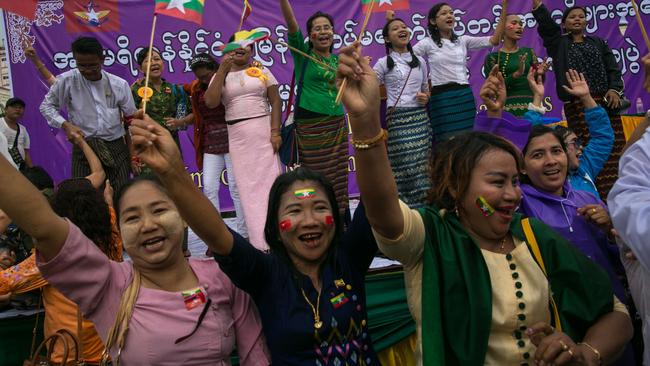UN links firms to abuse of Rohingya
A UN report has outed dozens of international and Myanmar companies with links to the Myanmarese military.

A new UN report has outed dozens of international and Myanmar companies with business links to the Myanmarese military, as well as states still selling arms to the country, which risked enabling further “gross violations of human rights”.
The 111-page report released yesterday by a three-member fact-finding mission on Myanmar, including Australia’s former human rights commissioner Chris Sidoti, calls for the most sweeping arms, business and consumer sanctions against Myanmar’s military in decades.
It also calls for the possible criminal prosecution of companies whose contributions to the military in the wake of the 2017 Rohingya Muslim crisis furthered the minority’s suffering.
It names more than 150 Myanmar companies owned by, or affiliated to the military, (Tatmadaw), and puts countries and companies “on notice of the human rights implications that arise from maintaining business connections” with it.
“We expect international organisations, states and business will respond,” Mr Sidoti said at a briefing in Jakarta.
Among the panel’s recommendations are targeted sanctions by the UN Security Council and member states, an arms embargo and a consumer campaign to boycott products such as jade and rubies — an industry dominated by the military and notorious for forced labour.
It calls for a “full restructuring of the Tatmadaw” to bring it under civilian control — a herculean task while the country remains under a military-drafted constitution that gives it control of four key ministries and 25 per cent of parliamentary seats.
It also demands an investigation “with a view to criminal prosecution” of 45 Myanmar companies — singling out KBZ Group and Max Myanmar — that donated more than $US10 million to the military after its August 2017 clearance operation against Rohingyas in Rakhine state forced more than 700,000 civilians to flee into Bangladesh. The money was used to build a border fence and redevelop Rohingya lands.
Successive UN and rights agencies have documented the mass rape of thousands of Rohingya women and girls during those operations, the murders of civilians and the destruction of villages, concluding they constituted crimes against humanity and possibly genocide.
The latest study details the military’s interests in construction, pharmaceuticals, manufacturing, tourism, insurance, banking and coal, oil, gas and gemstone mining, as well as foreign and domestic companies with links or in joint ventures with military companies.
Among them were 59 international firms, including French Swiss cement manufacturer LafargeHolcim, India’s Adani and South Korean miner Posco. They faced a “high risk of contributing to, or being linked to, violations of international human rights law and international humanitarian law” if they continued to do business with the military or military-related entities, the report warned.
Panel chairman Marzuki Darusman said their research had uncovered an “indisputable link” between the Tatmadaw’s vast business activities and its “committing of atrocities”.
“What has enabled the Tatmadaw to commit these crimes is in fact their business relations and activities, and therefore the immediate challenge ahead is to address this,” he said.
Mr Sidoti said the panel’s research was the “tip of the iceberg” and there were likely many more foreign companies dealing with Tatmadaw-owned enterprises in contravention of international law, including potentially Australian mining companies active in Myanmar.
Arms embargoes by US, Australia, Canada and EU remain in place and some have been expanded since 2017. But countries such as Australia continued to resist targeted sanctions on the two most powerful commanders, Min Aung Hlaing and Soe Win.
Last year the same panel recommended both men be investigated and prosecuted for genocide, crimes against humanity and war crimes against ethnic groups nationwide.




To join the conversation, please log in. Don't have an account? Register
Join the conversation, you are commenting as Logout